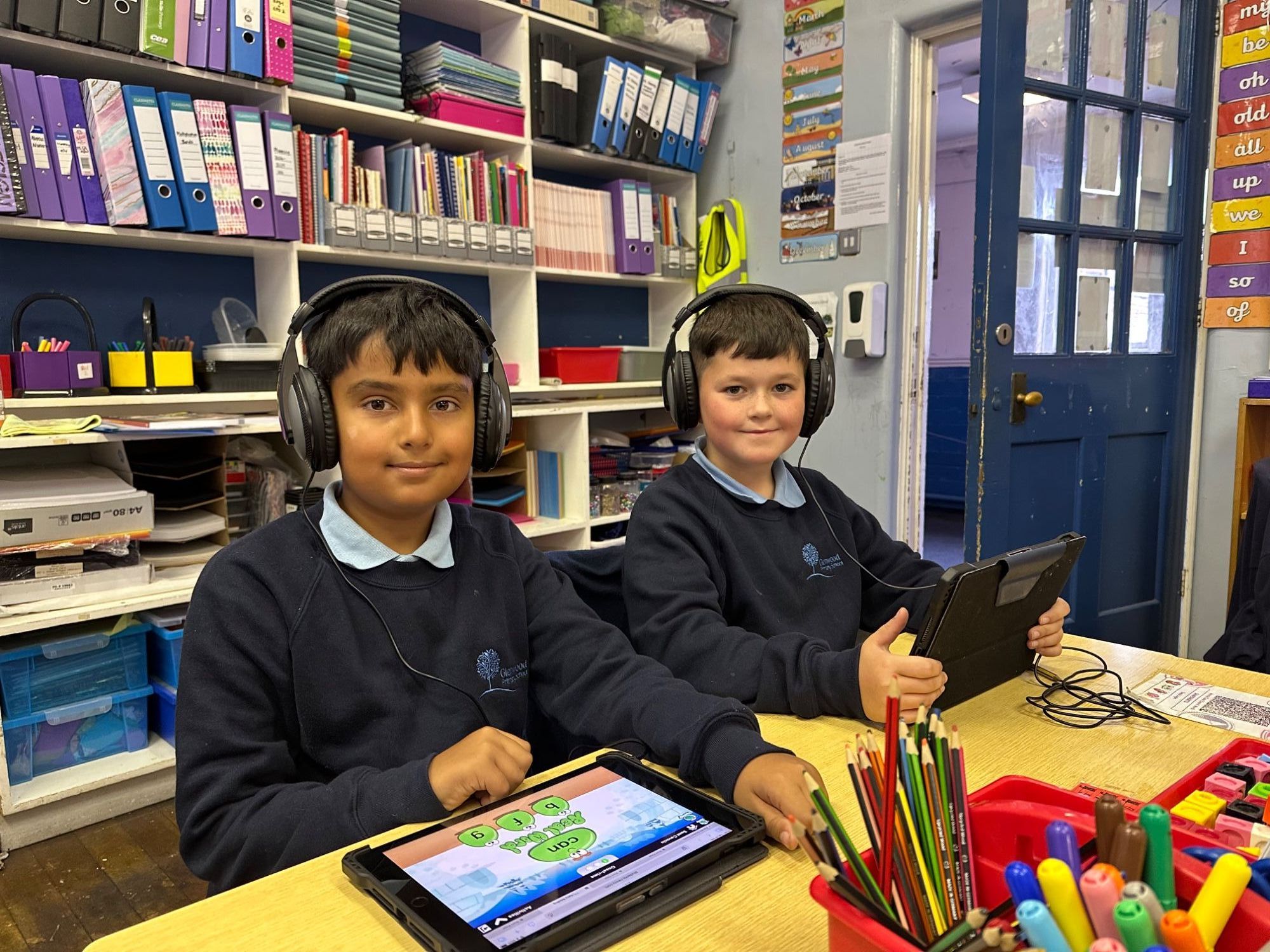ICT
ICT curriculum aims to:
- Develop pupils’ competence in using a wide range of digital tools and applications.
- Encourage problem-solving, critical thinking, and creativity through technology.
- Promote safe, responsible, and ethical use of digital platforms.
- Support collaboration and communication in both local and global contexts.
- Prepare pupils for the demands of a rapidly changing digital society.
Key Areas of Learning
ICT is embedded across the curriculum and focusses on five key strands:
- Explore – Using digital tools to investigate, research, and manage information.
- Express – Creating, presenting, and sharing ideas through multimedia and digital formats.
- Exchange – Communicating and collaborating effectively using digital platforms.
- Evaluate – Reflecting on the effectiveness of digital tools and processes.
- Exhibit – Showcasing learning and achievements through digital outputs.
Progression
- Foundation Stage & Key Stage 1: Pupils are introduced to basic digital skills, exploring simple applications and learning about online safety.
- Key Stage 2: Pupils develop greater independence, using ICT to research, create, and present information across subjects.
Online Safety
A strong emphasis is placed on digital responsibility and safeguarding. Pupils are taught how to protect their personal information, respect others online, and make informed choices in the digital environment.
Impact
Through ICT, pupils become confident, adaptable, and responsible digital citizens. In Glenwood, we ensure they are well-prepared for future learning, employment, and participation in an increasingly digital society.





